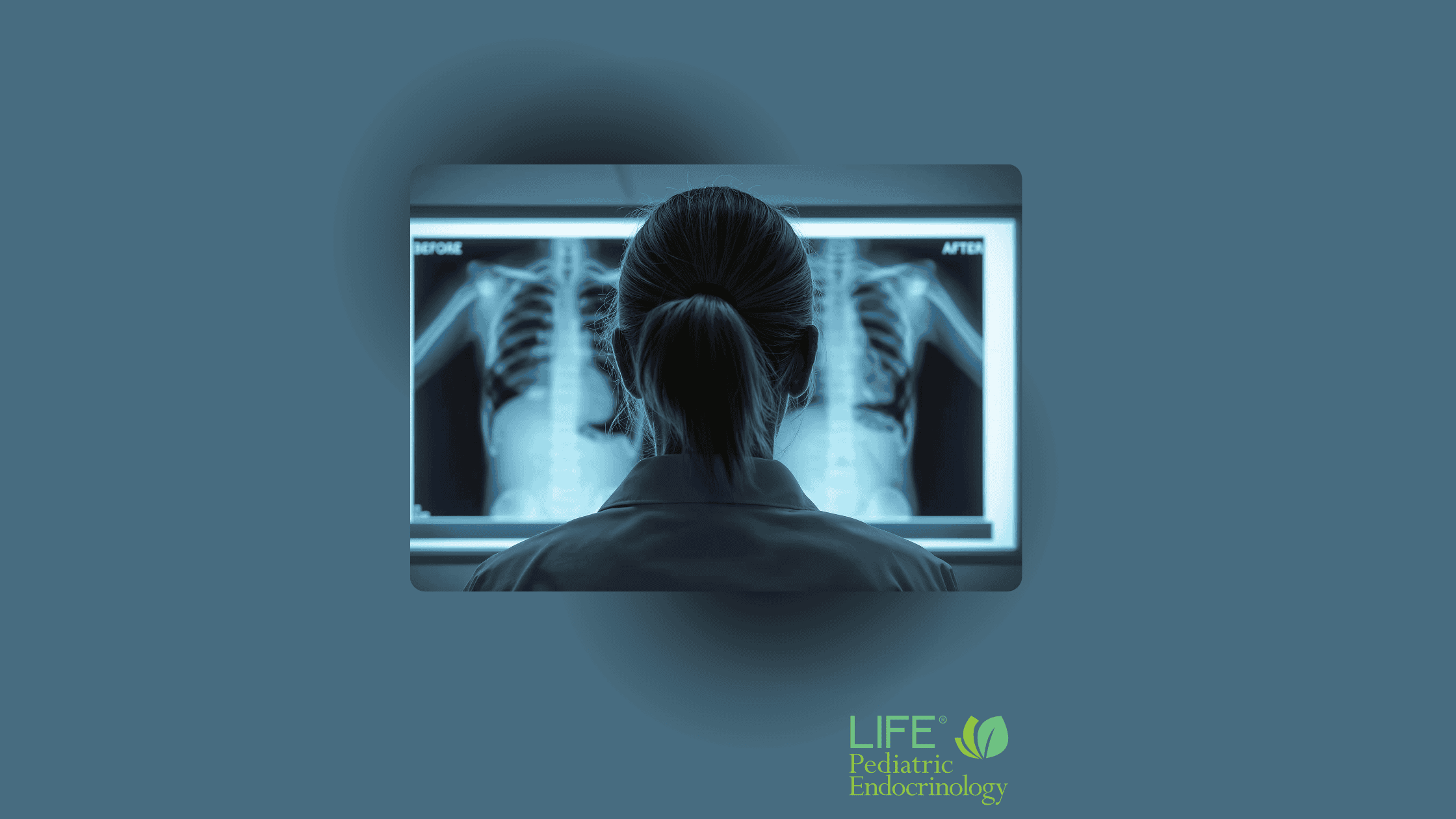By Dr. Kelli Davis, Pediatric Endocrinologist at Life Pediatric Endocrinology
Introduction: Why Hypothyroidism in Teens Often Goes Unnoticed
Hypothyroidism, or an underactive thyroid, occurs when the thyroid gland does not produce enough thyroid hormone. While it is often associated with adults, this condition can also affect teenagers—particularly girls. Because many of the warning signs are subtle and overlap with everyday adolescent changes, hypothyroidism in teenage girls is frequently underdiagnosed (JAMA Pediatrics).
As a pediatric endocrinologist specializing in thyroid care, I’ve seen how early recognition and treatment can make all the difference. Parents who know the key warning signs can advocate for their child and prevent long-term complications such as growth failure, menstrual disturbances, or emotional struggles.
10 Warning Signs of Hypothyroidism in Teenage Girls
While no single symptom is diagnostic, a combination of symptoms should prompt parents to seek medical evaluation. Here are the top signs backed by clinical research:
-
Fatigue and Low Energy – Persistent tiredness despite adequate sleep is one of the most common complaints in hypothyroidism .
-
Growth Impairment – Slowed growth or a plateau in height is a sensitive indicator in pediatric patients .
-
Menstrual Irregularities – Periods may be delayed, absent, unusually heavy, or irregular due to disruption in the thyroid–reproductive axis .
-
Constipation – A frequently overlooked but common digestive symptom in teens with low thyroid function .
-
Cold Intolerance – Feeling unusually cold compared to peers, even in mild temperatures .
-
Goiter (Enlarged Thyroid Gland) – A visible or palpable swelling in the neck is often the most consistent physical finding .
-
Dry Skin and Hair Loss – Skin changes, brittle hair, or noticeable shedding can accompany hypothyroidism .
-
Cognitive Slowing or “Brain Fog” – Difficulty concentrating, slowed thinking, or academic struggles may occur .
-
Weight Gain (Not Always Present) – While often cited, weight gain is less specific; it may occur but is not always a key sign .
-
Facial Puffiness or Swelling (Myxedema) – Puffiness around the eyes or extremities can develop in more severe cases .
When to Consult a Pediatric Endocrinologist
If your teenage daughter experiences several of these symptoms together—especially growth impairment, fatigue, or menstrual issues—it is important to consult a pediatric endocrinologist. Blood tests such as TSH and free T4 levels are simple but powerful tools for diagnosis. Early detection can prevent complications like compromised adult height or long-term reproductive issues.
Treatment Options and Management Strategies
The standard treatment for hypothyroidism is levothyroxine. Treatment with levothyroxine, as outlined in the American Thyroid Association guidelines, is safe and highly effective. Adjustments are based on growth patterns, lab values, and symptom improvement (American Thyroid Association Guidelines).
At Life Pediatric Endocrinology, our approach goes beyond prescriptions:
-
Individualized dosing based on growth and development
-
Regular monitoring of labs and auxology (growth charts, pubertal milestones)
-
Integrative care addressing nutrition, mental health, and lifestyle factors
Long-Term Outlook and Support Resources
With proper treatment, most teenage girls with hypothyroidism live full, healthy lives. Growth often resumes, menstrual cycles normalize, and energy levels return. However, ongoing monitoring is essential, since thyroid needs can change during adolescence and beyond.
Parents can find additional support through:
-
Peer and family support groups for teens managing thyroid disorders
-
Specialized care from pediatric endocrinologists who focus on adolescent health
Conclusion: Empowering Parents with Knowledge
Hypothyroidism in teenage girls is more common than many families realize. The condition often develops slowly, with symptoms brushed off as “normal teen changes.” Yet when parents know the 10 warning signs—fatigue, slowed growth, menstrual irregularities, constipation, cold intolerance, goiter, dry skin, cognitive slowing, weight gain, and puffiness—they are better equipped to act quickly.
If you notice these changes in your daughter, trust your instincts and seek medical evaluation. Early treatment can protect her growth, confidence, and long-term health.
References
-
Hanley P, Lord K, Bauer AJ. Thyroid Disorders in Children and Adolescents: A Review. JAMA Pediatrics. 2016;170(10):1008-1019. Link
-
Kucharska AM, Witkowska-Sȩdek E, Labochka D, Rumińska M. Clinical and Biochemical Characteristics of Severe Hypothyroidism Due to Autoimmune Thyroiditis in Children. Front Endocrinol. 2020;11:364. Link
-
Jonklaas J, Bianco AC, Bauer AJ, et al. Guidelines for the Treatment of Hypothyroidism. Thyroid. 2014;24(12):1670-751. Link
-
Carlé A, Pedersen IB, Knudsen N, et al. Hypothyroid Symptoms and the Likelihood of Overt Thyroid Failure: A Population-Based Case-Control Study. Eur J Endocrinol. 2014;171(5):593-602. Link
-
Doufas AG, Mastorakos G. The Hypothalamic-Pituitary-Thyroid Axis and the Female Reproductive System. Ann N Y Acad Sci. 2000;900:65-76. Link
Disclaimer: This article is for educational purposes only and is not a substitute for professional medical advice. Always consult a qualified healthcare provider with questions about your child’s health.
Share this
You May Also Like
These Related Stories

Hypophosphatasia (HPP): Diagnosis and Treatment with Asfotase Alfa

Weekly Growth Hormone Injections: Are They Right for Your Child?


